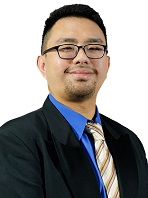KEYNOTE ADDRESS

Prof. Dr. Nadeem Javaid
Nadeem Javaid received the Ph.D. degree from the University of Paris-Est Creteil (UPEC), France, in 2010. He is currently a Professor and the Founding Director of the Communications Over Sensors (ComSens) Research Laboratory, International Graduate School of Artificial Intelligence, National Yunlin University of Science and Technology (YunTech), Taiwan. He was a visiting professor at the University of Technology Sydney (UTS), Australia. He has supervised 203 master’s and 35 Ph.D. theses. He has authored over 950 articles in technical journals and international conferences, three books and holds a U.S. invention patent. He has delivered many keynote and invited talks at international conferences. With 33,000 citations and an H-index of 90, he was included in Engineering and Technology/Computer Science in the Stanford University’s List of Top 2% Scientists in the World. His research interests include Applications of AI in smart grids, health care, IoT, etc.
Title:
From Intelligent Sensing to Trustworthy Autonomy: AI, IoT, and Blockchain in Shaping the Future of Smart Societies
Abstract:
The convergence of Artificial Intelligence, Internet of Things, and Blockchain technologies is transforming the way societies generate, manage, and secure knowledge. In smart grids, intelligent sensing and edge intelligence are enabling sustainable energy systems; in healthcare, AI-powered IoT is redefining patient-centric services; and in critical infrastructures, blockchain is laying the foundation for trustworthy and transparent operations. Yet, this transformation comes with pressing challenges: scalability under massive data volumes, resilience against adversarial threats, privacy-preserving intelligence, and the urgent need for green, sustainable computation.
In this keynote, I will provide a holistic perspective on the evolution from data-driven sensing to autonomous, trustworthy systems. I will highlight lessons learned from two decades of research, present cutting-edge advances in energy-aware wireless sensor networks, federated learning at the edge, and blockchain-enabled trust frameworks, and discuss how these innovations can converge to build the foundations of “smart societies.” Finally, I will outline future research frontiers—such as quantum-safe blockchain, human-in-the-loop AI, and sustainable edge intelligence—that will define the next decade of intelligent systems.
This talk aims to inspire both researchers and practitioners by blending technical depth with societal vision, underscoring how we can responsibly shape a future where AI- and IoT-driven autonomy coexists with human trust, ethics, and sustainability.

Ir. Ts. Dr. Gideon Tan
Ir. Ts. Dr. Gideon Tan began his professional journey with an MEng from Imperial
College London, starting his career as a Technical Executive in the Downstream Division
of FGV. In this role, he managed critical responsibilities in oil and fats refineries and
manufacturing plants, gaining deep expertise in technical operations and process
management.
As his career progressed, he assumed a strategic position in the Group CEO’s Office of
FGV Holdings Berhad, where he coordinated group-level technical initiatives and
improvement projects across the supply chain—covering research and development,
estate management, and production processes.
In 2020, he was appointed Head of the Group Transformation Division at FGVHB, where
he drives enterprise-wide efficiency initiatives, strategic improvements, and the
development of environmental, social, and governance (ESG) programmes. His
leadership plays a pivotal role in advancing FGV’s Net Zero Agenda, with a focus on
integrating solar, biomass, and other green technologies in line with Malaysia’s National
Energy Transition Roadmap (NETR). He also leads efforts in automation, robotics, and
digitalisation in collaboration with FGV’s R&D.
An active industry voice, Dr. Tan has shared insights at international conferences
across Japan, Singapore, Indonesia, Vietnam, and Malaysia, bringing practical
perspectives on sustainability, innovation, and energy transition.
Title:
Where Algorithms Meet Agriculture: A Journey into Industry 5.0
Abstract:
Discover how responsible AI and operational transformation converge in the era of Industry 5.0. This session offers industry reflections on governance, collaboration, and the human side of intelligent automation.